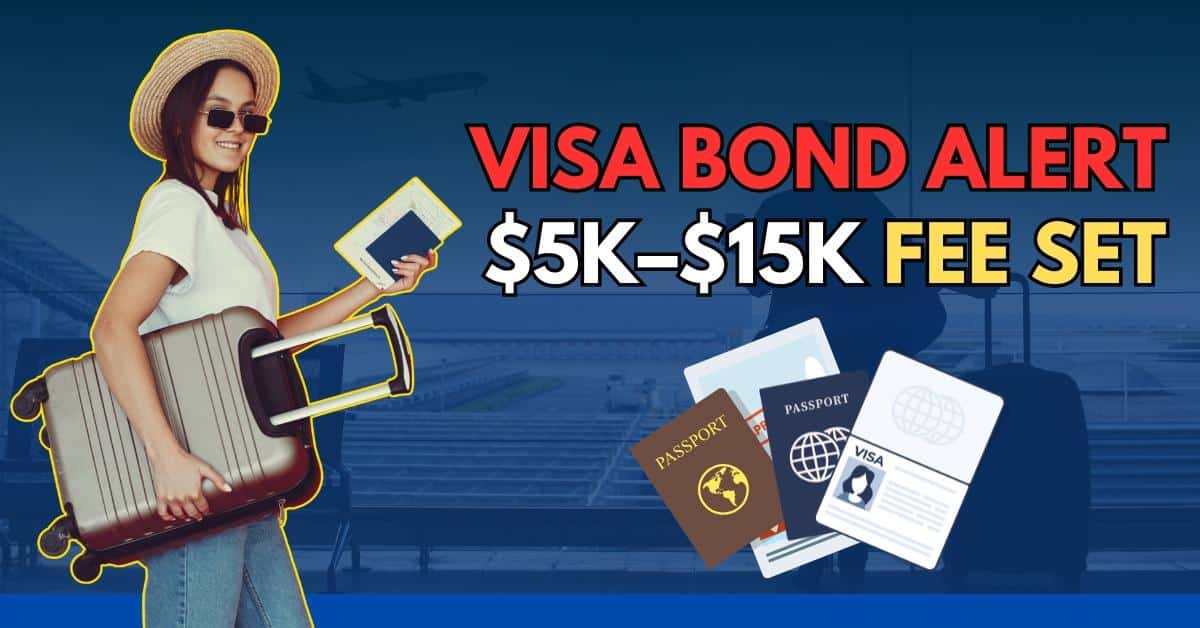The United States will implement a new visa bond program on August 20, 2025, marking a significant shift in its immigration and travel policy. Announced by the U.S. Department of State, this one-year pilot project will initially apply only to citizens of Malawi and Zambia applying for B-1 business visas or B-2 tourist visas.
Under the program, eligible applicants will be required to pay a refundable visa bond ranging from $5,000 to $15,000 before traveling to the United States. The bond will be refunded in full if the traveler complies with all visa conditions, including departing the country before the authorized period expires. However, overstaying or violating the visa terms will result in the forfeiture of the bond. In addition, travelers under this program must enter and exit through designated airports: Boston Logan International Airport, New York John F. Kennedy International Airport, and Washington Dulles International Airport.
At this stage, the program applies only to Malawi and Zambia. Bangladesh is not included in the initial list, but reports indicate that other countries may be added in the future, depending on U.S. assessments of overstay risks. While Bangladeshi travelers are unaffected for now, future inclusion could introduce significant costs and travel restrictions.
The policy has already sparked criticism. The Zambian government has voiced strong opposition, stating that the high bond amounts will place heavy financial burdens on its citizens and could limit opportunities for travel, business, and cultural exchange. Immigration experts have also expressed concern, warning that the measure may make travel to the United States inaccessible for many people, particularly from lower-income countries.
From the perspective of U.S. authorities, the program’s main objective is to reduce visa overstays, a persistent issue in the immigration system. Overstaying a visa can lead to serious consequences, including bans on future travel to the United States. By requiring a substantial financial deposit, the program creates a strong incentive for visitors to respect the terms of their stay and return home on time.
If expanded to include more countries, the policy could significantly change how travelers approach U.S. visits. For casual tourists, the high upfront cost may discourage short-term trips, while business travelers may need to allocate larger budgets for travel. For those in Malawi and Zambia, anyone applying for a U.S. visa after August 20 will need to prepare for the additional cost and ensure compliance with the program’s strict conditions.
The 12-month trial period will be closely monitored to determine whether the program achieves its intended goals without creating unnecessary barriers for legitimate travelers. Factors such as compliance rates, financial impact, and diplomatic responses from participating countries will influence whether the program is continued, expanded, or discontinued.
For now, citizens of countries outside the program remain unaffected. However, the possibility of future inclusion means travelers should remain attentive to updates in U.S. immigration policy. A change of this nature could have lasting effects on international travel patterns, visa application processes, and the affordability of visiting the United States.
The visa bond program represents one of the most notable policy experiments in recent years aimed at addressing overstays. Its outcome will likely shape how the United States balances immigration control with maintaining openness to international visitors, potentially setting the stage for broader changes in the years to come.

